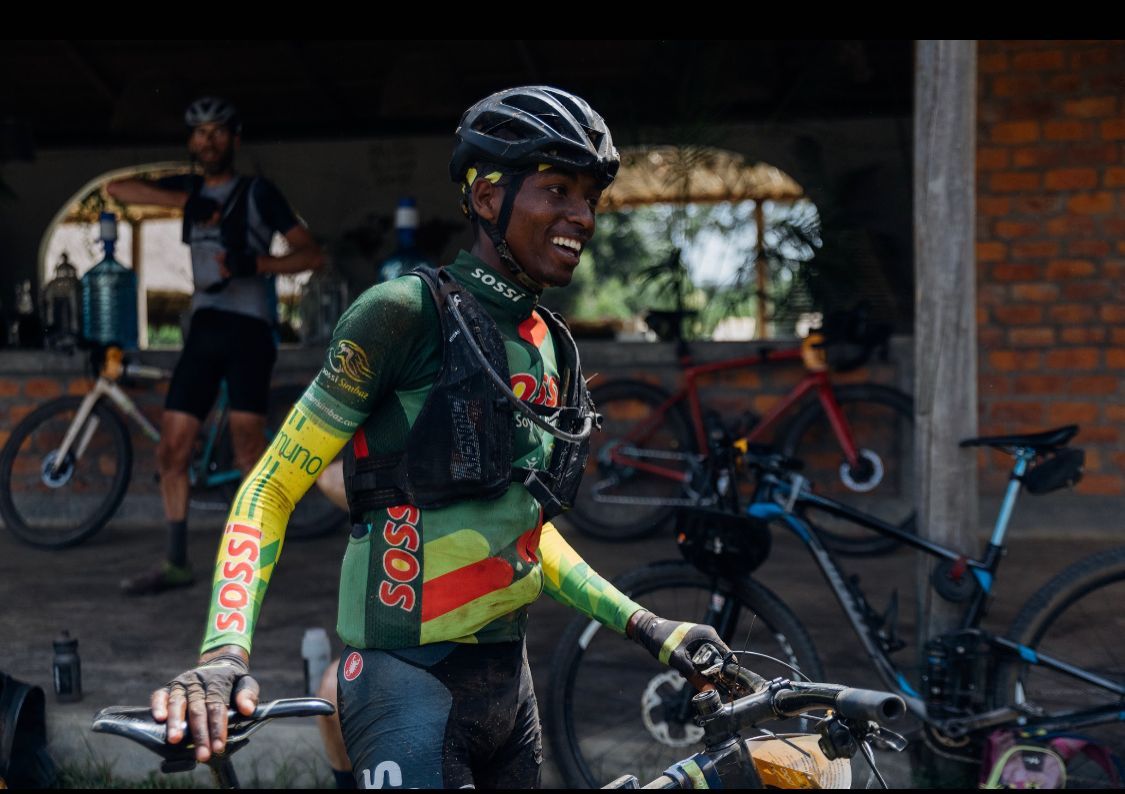Meet Kenneth Karaya, Lachlan Morton's Cape Epic teammate

Karaya was third overall at the 2021 Migration Gravel Race. (Photo: @saltlake_lian)
When Alex Howes had to bow out of the Cape Epic due to a broken finger, Lachlan Morton needed to find a new partner. He decided he wanted to do the week-long stage race in South Africa with an African rider.
Morton was supposed to have raced the inaugural Migration Gravel Race in Kenya earlier in the summer (he wasn’t able to due to COVID-induced travel complications), so he thought to call up Mikel Delagrange, one of the race’s founders, to see if he knew someone who might be interested.
Read also: Kenya’s Migration Gravel Race: ‘This isn’t another feel-good African development story’
Yet, like any headline that features an African cyclist stepping up to the world stage of cycling, a circuitous and complex backstory precedes it. With virtually no clear path to becoming a pro cyclist in Kenya, aspiring riders must make countless sacrifices and rely on the support and resources of others. They have to jump at every opportunity.
For Karaya, opportunity has dovetailed effort in various forms. From his teenage years learning bike and life skills under the tutelage of David Kinja to his podium finish at the Migration Gravel Race, for Karaya the Cape Epic represents much more than just a bike race.
Safari Simbaz
When Karaya was 12, he came to David Kinja with a very heavy bike. Kinja, once best known as Chris Froome’s coach and mentor, is now more recognized for his work with Safari Simbaz, an organization he founded nearly two decades ago that seeks to give young people a path out of poverty, using the bicycle (and football) as a conduit.
Karaya was as good a business student as he was a bike racer. One year, Kinja bought a motorbike for the club and taught the boys to ride it. The boda boda business (motorcycle taxis) was booming, and Kinja wanted the boys to know it. “Train in the morning, then rest, then do boda boda work in evening and make more money,” he told them. Karaya bought his first motorcycle when he was 19. He employed a local man to drive in. The following year, he bought two more motorbikes.
“He did very well in the boda boda business, Kinja said. “So yes, he’s a good rider, he understands bicycles, and most important to me, he has sustainability. If he broke a leg today and couldn’t ride, he could sustain himself financially.”
Safari Simbaz is one of the few gateway programs for bike racing in Kenya that doesn’t doesn’t stem from a white, western agenda. As a former pro himself (and six-time Cape Epic finisher), Kinja knows that what Karaya has to do in order to sustain himself as a cyclist in no way resembles what Morton does. He also knows that, given the scarcity of resources available to run his programs, he too, has to jump at every opportunity.
Watch: Fursa presented by Wahoo
The Migration Gravel Race, held in Kenya last June, was one such example. Although Kinja had been nurturing Karaya’s talent for years with the Simbaz, he credits the publicity around the four-day gravel stage race as the reason for Karaya’s Cape Epic call-up.
“If the Migration did not happen, only Kinja would be knowing the potential of Karaya,” Kinja said. “Now many people, including Betsy, know that Kinja has some good boys. We were given a chance to be there, and I told they boys, go hard. And they did go hard. And you see, one step leads to the other.”
The Migration Gravel Race
While everyone at the Migration Gravel race knew its premise beforehand, no one could predict how it would actually play out.
Could East African talent perform against recent retirees from the WorldTour? Delagrange said that, in order for any effort to support pro cycling in the region to work, it was important to address that question.
“And, it did,” he said. “It answered a lot of unanswered questions — how good are these guys? We just didn’t know. We had an idea. Jut because they’re crushing the regional competition doesn’t mean they can beat Thomas Dekker when he shows up. Once we knew what they had, I felt more comfortable approaching bigger races and brands and saying ‘we really have something here.'”
After Karaya’s breakout performance on the first day of the race — he finished fourth, one of few riders on a mountain bike — the rest of the peloton had its eye on him. And, he himself felt the pressure.
Read also: Ian Boswell on the Migration Gravel Race: ‘It’s so much more than a bike race’
Karaya spent three weeks based in the Netherlands, soaking up every opportunity — and, swapping bikes along the way. He lined up at local gravel races, spent a week on the road on the Haute Route Dolomites, and finished 10th in the marathon mountain bike race Vulkanbike. His host was Ruben Kranendonk, one of the other Migration Gravel Race participants.
This hodgepodge introduction to European-based racing — versus being thrown directly into road culture, with its sharper edges — is part of Team Amani’s mission. Yet, the shock of foreign foods and language is always a real thing. As is the caliber of competition.
Kinja said that the Cape Epic will be an incredible challenge for Karaya, both on and off the bike. But he’s seen others struggle and persevere before him; if anything, that will be Karaya’s lesson.
“Froome was one of the hard-working youngsters,” Kinja said. “He was super tough. He used to push very hard, sometimes his mom would come to me and say ‘Kinja, I think you’re pushing the boy too hard!’ and I said, ‘no, he’s learning to push himself.'”